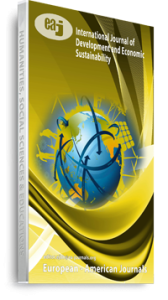The dearth of the reasoning stage in the scrutiny of evolution of management accounting thought creates a serious gap in this classic topic in management accounting literature. Liberalization of the advance economies in early 1800 increased the intensity of international competition and changed in the internal information needs of corporations’ managers. This study explores the evolution of a broad range of management accounting practices but focused on management control systems, using theoretical frameworks. The ultimate purpose of this paper is to explain how management accounting (MA) evolved and current state of the main theories behind management accounting so as to guide researchers and advance further business scholars. In addition to identifying the management accounting theoretical development, the study identifies the main criticisms of these theories, thus creating a ground for prospective enquiry. The differences in management accounting practices are examined in relation with corporations and academic experiences. The study finds evidence of change in management accounting practices and development is associated with shift in external environment. The study show that accounting though and events of the last two decades have spurred development of managerial accounting. Additionally, MA it is becoming widely recognized as a field of expertise separate from financial accounting. And that the number management accounting innovations during the last two decades is higher than those of two earlier decades of 1960s and 1970s.
Keywords: Agency Theory, Contingency Theory, Management Accounting Evolution, Management Accounting Theories, Strategic Management Accounting

